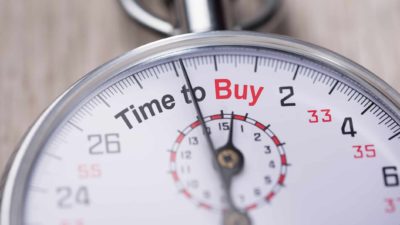I'm sure most people have heard the phrase "time in the market beats timing the market" or something similar. It's a great phrase and it's important to understand what it means.
Timing the market refers to an investor thinking they know when the market is going to fall or go up and basing their investment decisions on this prediction. Think back to the start of 2016 when RBS in the UK advised clients to sell everything and brace for a cataclysmic year.
Remember what happened in 2016? The UK voted for Brexit and Donald Trump was elected. Was it an apocalypse for the share market? No. Maybe it should have been. Maybe RBS clients have held all their money as cash all this time waiting for a fall. If they did that they've missed out on some big gains.
Firstly, no-one knows what the share market is going to do in any given day, month or year. There are indicators of various things yes, but that is no guarantee in the slightest of a crash or a bull run.
Compounding is the most powerful economic force for us as investors. That doesn't just mean re-investing your dividends, although that is a good idea. A business that is able to re-invest profits back into itself at a high rate of return and has a long-term future is an unstoppable wealth creation machine over time. If you're not invested you're missing out on compounding.
Being fully invested in quality companies and holding for them for the long-term, through economic cycles, is much better than missing out on gains.
The share market continues to go up. If you're waiting for a crash then you're effectively shorting the share market – this doesn't work the longer you wait.
If the Facebook share price halved then it would only take you back two years to early 2016, around the time of the RBS call. You could make the same comparison to many growth shares like CSL Limited (ASX: CSL), Cochlear Limited (ASX: COH), Altium Limited (ASX: ALU) and REA Group Limited (ASX: REA). It's better to own these for a decade than miss out.
Foolish takeaway
There's nothing wrong with holding a bit of cash, but I don't think most investors should be sat on the sidelines with most of their money waiting for a crash.
More money is lost through missing out on opportunities than in any other way. Share prices of quality businesses recover from recessions and continue to grow. When would an investor decide to jump back into the market if they have been waiting all that time? They could miss out on the recovery!








